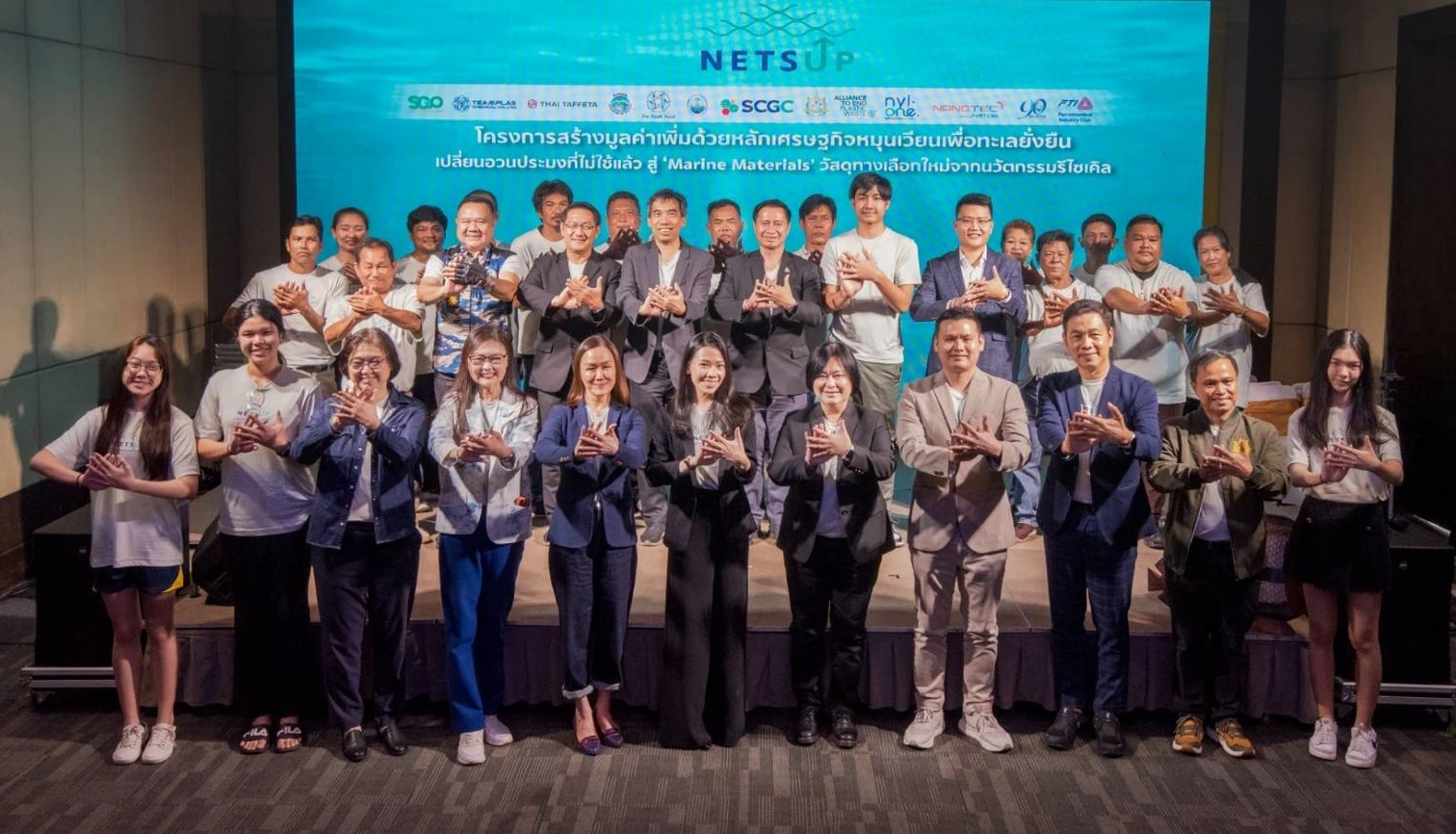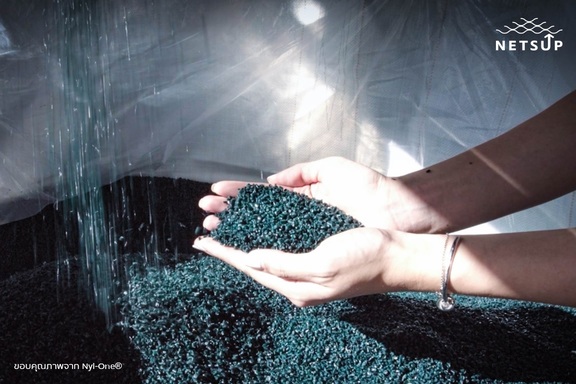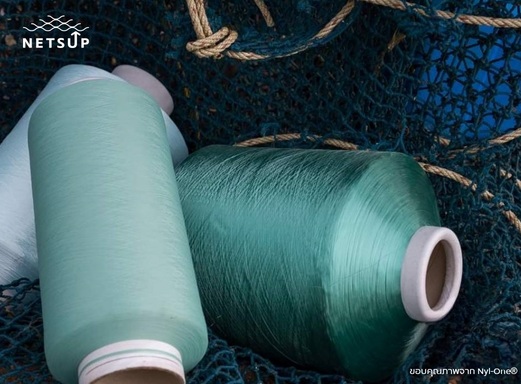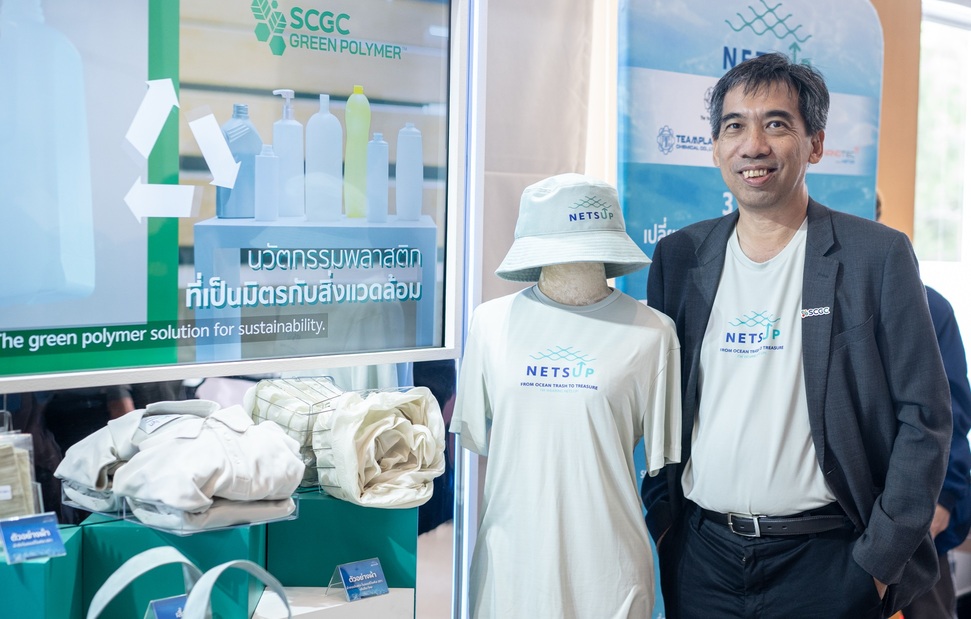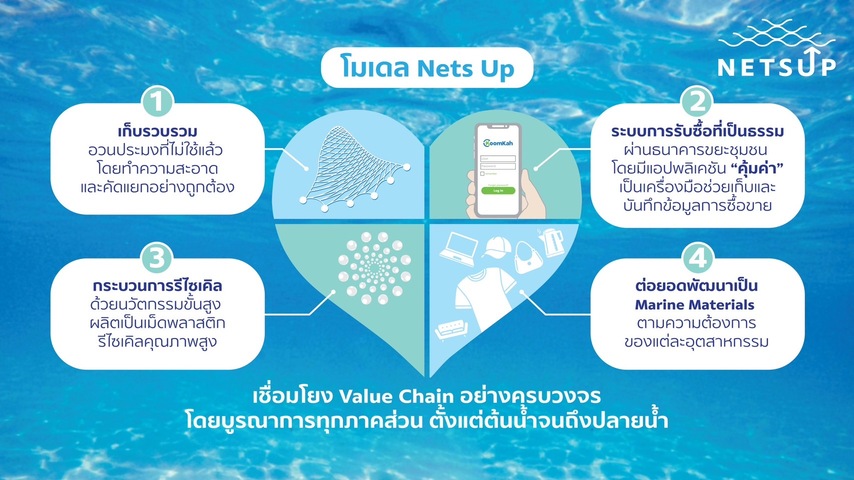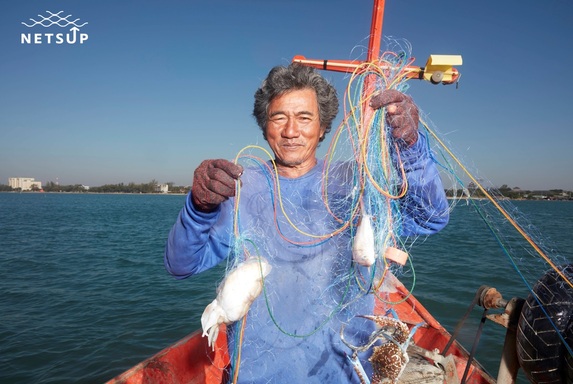At the event, a Memorandum of Understanding (MoU) was signed to mitigate environmental impacts through marine waste management and to promote the development of innovations aligned with the principles of a circular economy. Many stakeholders participated in this collaborative effort, including SCGC, the Ministry of Natural Resources and Environment, the Marine and Coastal Resources Office 1, the Youth Fund, Alliance to End Plastic Waste (AEPW), the Plaschemical team, National Nanotechnology Center, Nyl-One, Thai Taffeta, Petrochemical Industry Club, the Federation of Thai Industries (FTIPC), the Thai Chamber of Commerce, Sustainable Consumption and Production Association (Thailand), pilot fishing communities, and networks for marine environmental protection.
Dr. Suracha Udomsak, Chief Innovation Officer and Executive Vice President of SCG Chemicals (SCGC), revealed that, “The Nets Up model originated from SCGC's commitment to driving its business under the ESG (Environmental, Social and Governance) framework, with a focus on establishing a tangible circular economy through recycling innovations. By leveraging our expertise in high-quality Post-Consumer Recycled Resin (High-Quality PCR), we have developed Marine Materials, recycled from discarded fishing nets, to be a sustainable alternative for related industries. The Nets Up model fully integrates the value chain by involving all stakeholders, from upstream to downstream, and encompasses all dimensions, including reducing environmental impacts through marine waste management, promoting the proper disposal of discarded fishing nets to prevent them from entering the ocean, developing innovations, and adding value to discarded fishing nets. In addition, it involves community waste banks, the creation of local fishing networks, volunteerism, and environmental organizations.
In addition, the model aims to drive the business sector to utilize Marine Materials, or recycled materials from discarded fishing nets, into upcycled products such as fabric for clothing and household items. This not only adds value to the products in line with the circular economy but also helps to reduce environmental impact on the marine ecosystem and promotes income generation for local fishing communities. Currently, the model has been piloted in the coastal area of Rayong province. Plans are underway to expand the project to all 23 coastal provinces of Thailand in the future.”
Pichit Sombatmak, Deputy Permanent Secretary of Ministry of Natural Resources and Environment, said, “The Ministry of Natural Resources and Environment has policies to conserve and manage coastal and marine resources to achieve balance and sustainability to improve the quality of life. These efforts align with the national BCG (Bio-Circular-Green Economy) agenda and the Sustainable Development Goals. The Nets Up model and this Memorandum of Understanding will help fishing communities increase income through the sorting of fishing net waste, reducing the burden of disposal, and preventing discarded fishing nets from entering the ocean. The Ministry is prepared to support SCGC and its network of partners in driving mechanisms to manage discarded fishing nets and collaborating with local small-scale fishing communities. This serves as a model for managing discarded fishing nets, with plans to roll out to coastal areas across Thailand.
Kris Pakdeejit, a representative from the Youth Fund, provided additional perspective, saying, “As a member of the younger generation, we are proud to be a part of the solution to marine environmental issues, in collaboration with the government, leading organizations, and network partners. The Youth Fund is a group of young people aged 15-17 who engage in continuous social activities aimed at conserving the country's natural resources and environment. For instance, we participate in underwater cleanups, coral planting, and mangrove reforestation. Collaboration in the Nets Up project is another mission where young people can contribute to meaningful changes to help protect the ocean and instill in the younger generation—the future and hope of the country —the importance of using resources wisely.”
SCGC has been continuously driving business and embedding the principles of the circular economy in society through a wide array of waste management models, such as the ‘Waste-Free Community Project’ and the 'Upcycling Milk Pouches Project' initiative. These efforts aim to raise awareness about maximizing the benefits of resource utilization by promoting the concepts of 'Resource Maximization, Correct Sorting, and Proper Disposal,' and to bring materials back into the recycling loop to create new value. In addition, SCGC is moving forward in collaboration with the Ministry of Natural Resources and Environment to address marine waste issues and restore marine ecosystems through innovations such as the SCG-DMCR Litter Trap and Fish Homes made from PE 100 pipes by SCGC.



